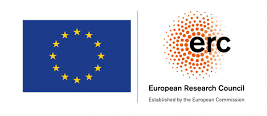The European Union announced the recipients of its coveted 2019 European Research Council (ERC) Starting Grants on Tuesday, which included four up-and-coming young scientists from Ben-Gurion University of the Negev (BGU). All four BGU grantees were from the Faculty of Natural Sciences, and three out of the four were from a single department – Chemistry.
Four hundred and eight early-career researchers of 51 nationalities were chosen, out of 3,106 who applied, an acceptance rate of 13.1%. The funding will help individual scientists and scholars to build their own teams and conduct pioneering research across all disciplines. The grants, worth in total €621 million, are part of the EU's Research and Innovation programme, Horizon 2020. Israeli scientists were awarded the fifth most grants behind Germany, the UK, the Netherlands and France.
Carlos Moedas, European Commissioner for Research, Science and Innovation, said: “Researchers need freedom and support to follow their scientific curiosity if we are to find answers to the most difficult challenges of our age and our future. This is the strength of the grants that the EU provides through the European Research Council: an opportunity for outstanding scientists to pursue their most daring ideas."
BGU President Prof. Daniel Chamovitz lauded the new grant recipients, "ERC grants are both important career boosters for our talented young researchers and international recognition of the caliber of research being conducted at BGU. This year's awardees join a growing community of ERC funded researchers who continue BGU's commitment to push out the frontiers of science while addressing the world's most pressing problems. I look forward to seeing what some of our sharpest brains can do with the ERC's generous funding as BGU moves into its second half century."
Prof. Raz Jelinek, BGU's VP and Dean of R&D, "The ERC awards to four young faculty members from the Chemistry and Life Sciences Departments reflect our striving for scientific excellence and the emphasis BGU places on recruiting high quality, leading faculty members."
The four BGU recipients are:
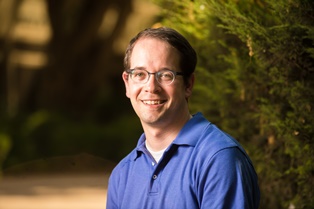
Dr. Joshua Baraban, Department of Chemistry
Research Topic:
Radicals are central to combustion and atmospheric chemistry, among other fields. The development of new detection techniques for these exotic but important molecule species will enable us to learn more about their intrinsic properties and their behavior in a wide variety of chemical processes and environments - how fast they react, how they store and transfer energy, and how much of an effect they have on practical outcomes like fuel efficiency and air pollution.
Bio
Dr. Baraban received his B.S./ M.S. in Chemistry from Yale College in 2006 with Prof. J. Michael McBride, followed by graduate work at MIT (Ph.D. Physical Chemistry, 2013), on high resolution gas phase spectroscopy in the group of Prof. Robert W. Field. He was then a postdoctoral researcher with Profs. G. Barney Ellison and John W. Daily (UC-Boulder), where he developed an optically accessible pyrolysis microreactor. Baraban joined the Department of Chemistry in August 2017.
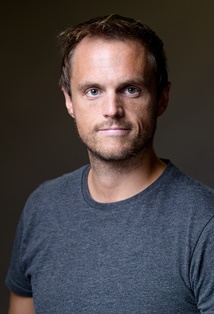
Dr. Benjamin Palmer, Department of Chemistry
Research Topic
Many spectacular optical phenomena in animals are produced by the interaction of light with crystals of small organic molecules. Dr. Palmer's ERC Starting Grant aims to uncover the biological, chemical and physical strategies organisms use to exquisitely control the size and shape of the crystals, which determines the type of optical effect produced. The project will uncover fundamentally new insights on crystallization mechanisms (a longstanding problem in chemistry) and provide inspiration for the design of novel organic optical materials.
Bio
Palmer studied chemistry in Cardiff University in the UK and continued there for a PhD under the supervision of Prof. Kenneth Harris. His PhD work focused on the phenomenon of X-ray birefringence. He moved to the Weizmann Institute of Science as a postdoc in 2014 to work in the group of Profs. Lia Addadi and Steve Weiner. In his postdoc research, he studied crystallization in natural photonic systems. In June 2019 he started his current position in BGU's Department of Chemistry.
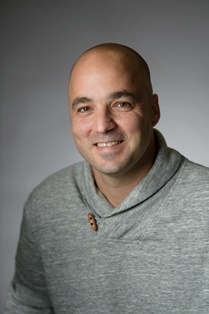
Prof. Menny Shalom, Department of Chemistry
Research Topic
The project will introduce new synthetic methodologies for producing 2D metal-free materials for clean and sustainable solar fuels production (e.g. hydrogen and carbon-based fuels) by using photoelectrochemical cells, which can directly convert sunlight into chemical fuels.
Bio
Shalom completed a B.Sc. in chemistry summa cum laude at Bar Ilan University in 2007. He conducted his Ph.D. under the supervision of Prof. Arie Zaban at Bar Ilan University. He did postdoctoral research at the Max Planck Institute of Colloids and Interfaces (MPI), Germany together with Prof. Markus Antonietti. He was appointed a Group Leader at MPI in 2013. Menny joined BGU's Department of Chemistry in October 2016.
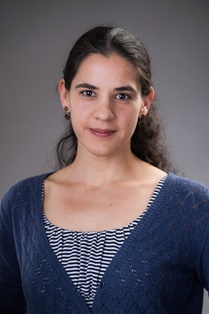
Dr. Deborah Toiber, Department of Life Sciences
Research Topic
Dr. Toiber and her team believe many of the age-related diseases are caused and are strongly influenced by the accumulation of unrepaired DNA damage. Every cell in our body encounters thousands of lesions per day, and, while most are repaired, biological systems are not perfect and some damage remains. DNA damage affects both the DNA itself and the epigenetic code. Prof. Toiber's lab will investigate how DNA damage occurring today, affects the development of disease in the future through long-lasting epigenetic marks, referred to as “Epigenetic Scars." The research will focus on neurodegeneration, and in the reprograming and safety of age-induced pluripotent stem cells (IPCs).
Bio
Toiber came to Israel from Mexico and completed all her studies at The Hebrew University of Jerusalem. She wrote her PhD under the supervision of Prof. Hermona Soreq (2008). She did post-doctoral research at MGH-Cancer Center, Harvard Medical School with Prof. Raul Mostoslavsky (2009-2014). She has been at BGU since 2014.
ERC Starting Grants are awarded to early-career researchers of any nationality with two to seven years of experience since completion of the PhD (or equivalent degree) and a scientific track record demonstrating excellence in research. The research must be conducted in a public or private research organization located in one of the EU Member States or Associated Countries. The funding (maximum €1.5 million per grant, plus up to €0.5 million to cover equipment and/or infrastructures costs) is provided for up to five years.
The European Research Council, set up by the European Union in 2007, is the European funding organization for excellent frontier research. Every year, it selects and funds the very best, creative researchers of any nationality and age, to run projects in Europe. The ERC also strives to attract top researchers from anywhere in the world to come to work in Europe. To date, the ERC has funded around 9,000 top researchers at various stages of their careers. It offers four core grant schemes: Starting, Consolidator, Advanced and Synergy Grants. The ERC is led by an independent governing body, the Scientific Council. The ERC President is Professor Jean-Pierre Bourguignon. The ERC has a budget of over €13 billion for the years 2014 to 2020, part of Horizon 2020, for which European Commissioner for Research, Innovation and Science, Carlos Moedas, is responsible.
